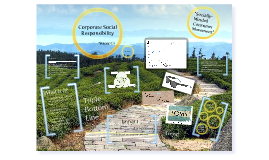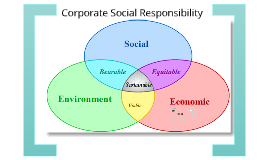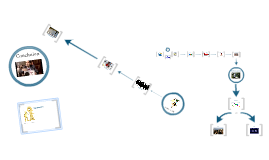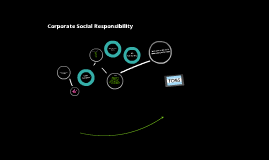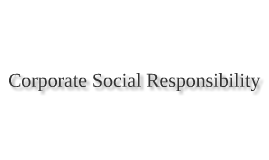Corporate Social Responsibility
Transcript: "When we talk about sustainable development we often talk about three pillars - economic, social, and environmental. And to find success, we have to find a balance to all three." - Doug Oberhelman, CEO Caterpillar Inc. Virtualizing/Cloud Computing IT Resources Brand Differentiation By virtualizing applications, DataCenter Capital expenses reduce on average $8,541 per application (not including reduction in operating expense or reduction in business lost due to downtime) Virtualizing reduces electricity & cooling needs to run a datacenter. It also helps eliminate square footage for expanding at-capacity datacenters. Adoption of cloud technologies is saving money and eliminating the overhead of in-house servers. 82% of all companies saved money on their last cloud adoption project. Penn Schoen Berland, in conjunction with Burson-Marsteller and Londor, conducted 1001 online interviews with the general public in the U.S. (ages 18+) from February 10-12, 2010. Overall, the margin of error is +/- 2.53% "What percentage of your salary would you be willing to give up in exchange for working with a company that is well-known for being socially responsible? Reducing existing necessary business products More companies are looking at ways to take their factory “green” Interface Inc in Atlanta did! In 2008, Interface reduce greenhouse gas (GHG) by 71% in absolute tons – sales increased by 2/3 and earnings doubled! Waste reduction measures put a cumulative $405 million of avoided costs directly into the bottom line. Impressive! http://www.michaelhartzell.com/Blog/bid/79788/82-of-Companies-Saved-Money-Using-the-Cloud-infographic Manufacturing Effeciencies Remanufacturing/Refurbishing Across all geographies, over 60% of consumers said that they prefer to purchase from environmentally responsible companies. The market is still developing, but companies jumping on board early with sustainability are getting that good “green” image that will carry them forward into the next generation. Remanufacturing/Refurbishing Human Resources Manufacturing efficiencies http://www.automationworld.com/asset-management/sustainability-leads-next-generation-manufacturing http://www.vmware.com/solutions/cost-savings/index.html Corporate Social Responsibility Virtualizing/Cloud Computing IT Resources Risk Management Human Resources Risk Management Brand Differentiation License to Operate Internal Reasons More and more companies are getting behind the sustainability initiative of remanufacturing/refurbishing products. Reduce waste and minimize the need for raw material for new parts… Just reuse! Keeps nonrenewable resources in circulation for multiple lifetimes Examples of remanufactured products: engines & machinery (CAT, John Deere, Bobcat), transmissions, carburetors, computers, printer cartridges, water pumps. . Remanufactured products have a reputation for performance “just like new” & for being more affordable and cost effective Provides a 2nd stream of income for a company on already previously sold and used items. “Green” efforts are good publicity License to Operate Reducing existing necessary business products Produce/Use Less External Reasons Cat Financial implemented duplex printing as its default printing option. In the first year, 5,900 reams of paper were saved. With an average price of $2.50 a ream, that’s a savings of $14,750 per year! Cat Financial reduced water usage by 641,827 gallons in 2010 by not running A/C on weekends, installing low-flow irrigation sprinkler heads and landscaping with drought-tolerant plants. Air-conditioning is the biggest consumer of water in a building! "Green" efforts are good publicity Define Corporate Responsibility Corporate Social Responsibility (CSR) refers to operating a business in a manner that accounts for the social and environmental impact created by the business. The goal of CSR is to embrace responsibility for the company’s action and encourage a positive impact through its activities on the environment, consumers, employees, communities, stakeholders and all other members of the public sphere.








